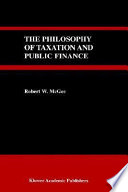 The creed which accepts as the foundation ! of morals, Utility, or the Greatest Happiness Principle, holds that actions are right in proportion as they tend to promote happiness, wrong as they tend to produce the reverse of happiness. The creed which accepts as the foundation ! of morals, Utility, or the Greatest Happiness Principle, holds that actions are right in proportion as they tend to promote happiness, wrong as they tend to produce the reverse of happiness.  A Primer of Philosophy - Página 97de Angelo Solomon Rappoport - 1904 - 118 páginasVista completa A Primer of Philosophy - Página 97de Angelo Solomon Rappoport - 1904 - 118 páginasVista completa - Acerca de este libro
 | Joseph Rickaby - 1919 - 404 páginas
...object and end of life is pleasure : which is the position laid down in so many words by Mill (1. c.), that " actions are right in proportion as they tend to promote happiness ; and " by happiness is intended pleasure and the absence of pain." If Hedonism were sound doctrine,... | |
 | Irwin Edman - 1920 - 488 páginas
...estimation of the relative pleasures and pains produced by it. The view is thus stated by John Stuart Mill: The creed which accepts as the foundation of morals,...Principle, holds that actions are right in proportion us they tend to promote happiness, wrong as they tend to produce the reverse of happiness. By happiness... | |
 | John Mackinnon Robertson - 1920 - 494 páginas
...UTILITARIANISM, however, is to oscillate between ideals of personal preference considered as such, and the thesis that " actions are right in proportion as they tend to promote happiness." The test of happiness is merged in a test of worthiness which presupposes an intuitional standard ;... | |
 | James Porter Moreland, William Lane Craig - 2003 - 673 páginas
...(whatever these may be) — usually "in the long run" or over a life-span. JOHN HOSPERS, "RULE-EGOISM" The creed which accepts as the foundation of morals,...right in proportion as they tend to promote happiness, as the;y tend to produce the reverse of happiness. JOHN STUART MILL, UTILITARIANISM 1 INTRODUCTION... | |
 | Peter Hicks - 2003 - 510 páginas
...designer of the world. Utilitarianism. Mill adopted Bentham's basic utilitarian principle, stating it as, "Actions are right in proportion as they tend to promote...as they tend to produce the reverse of happiness." However, in the light of extensive criticism, he refined Bentham's concept of happiness, emphasizing... | |
 | Jürgen Boomgaarden, Pekka Louhiala, Urban Wiesing - 2003 - 152 páginas
...that good results are results that maximise benefits and minimise harm. In its classical form QS Mill) 'actions are right in proportion as they tend to promote...as they tend to produce the reverse of happiness'. Vulnerable groups Two groups of people are most often considered vulnerable research subjects: 1) people... | |
 | Ian Glynn - 1999 - 468 páginas
...exception to the utilitarian approach of leremy Bentham and lohn Stuart Mill - the approach which held that 'actions are right in proportion as they tend to promote happiness'- because he felt that individuals acted rightly instinctively, without a preliminary rational calculation.... | |
 | Nicholas Capaldi - 2004 - 472 páginas
...what is right has to be defined in terms of what is good, understood in the universalizable sense. The creed which accepts as the foundation of morals,...of pain; by unhappiness, pain, and the privation of pleasure.42 Right is defined in terms of good; good is understood as happiness; and happiness is identified... | |
 | Maureen Ramsay - 2004 - 292 páginas
...whose interest is considered' (Bentham, 1967, p. 126). Mill explains the principle of utility thus: The creed which accepts as the foundation of morals,...is intended pleasure, and the absence of pain; by unhappmess, pain and the privation of pleasure. (Mill, 1962b, p. 257) It is assumed that happiness... | |
 | Robert W. McGee - 2003 - 334 páginas
...Tightness or wrongness of the action.21 John Stuart Mill, another early exponent of utilitarianism, said: The creed which accepts as the foundation of morals...happiness; wrong as they tend to produce the reverse of happiness.22 Henry Sidgwick, another English utilitarian, gives a more precise definition: By Utilitarianism... | |
| |